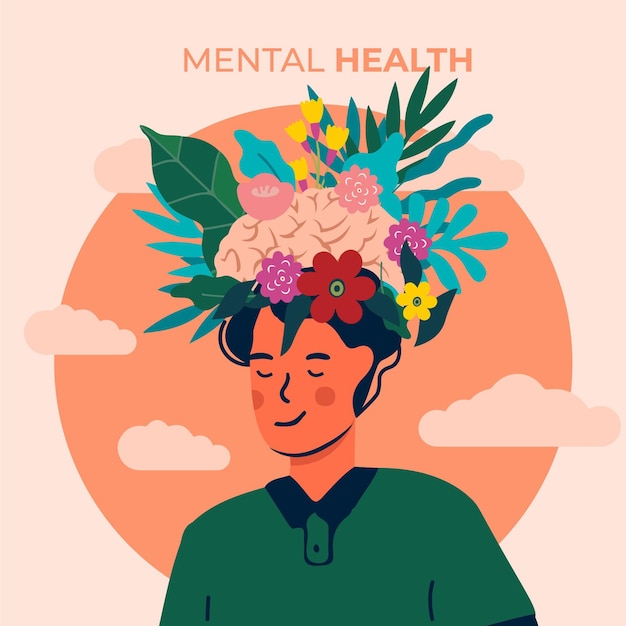
Mental health care is a crucial aspect of overall well-being, yet it remains a topic that is often overlooked or misunderstood. Our mental well-being is integral to leading a fulfilling and balanced life, as it impacts our thoughts, emotions, and actions on a daily basis. Taking care of our mental health is a proactive and empowering step towards unlocking the full potential of our minds.
In today’s fast-paced and demanding world, many individuals face numerous challenges that can take a toll on their mental well-being. Stress, anxiety, depression, and other mental health conditions are more prevalent than ever before. Recognizing the importance of mental health care is crucial not only for individuals but also for society as a whole.
Fortunately, there has been a growing awareness surrounding mental health care, leading to an increase in resources, support networks, and treatment options. Mental health professionals, such as psychologists and therapists, are now more accessible, providing guidance and assistance to those who may be struggling. Additionally, community organizations and online platforms have emerged as valuable sources of information and support for individuals seeking to enhance their mental well-being.
Navigating the path to mental wellness requires a multifaceted approach, as each individual’s experience is unique. It involves recognizing and acknowledging one’s thoughts, emotions, and behaviors, and seeking appropriate help when necessary. Self-care practices, such as adequate sleep, regular exercise, and stress reduction techniques, can significantly contribute to maintaining optimal mental health. Furthermore, fostering healthy relationships, engaging in hobbies, and incorporating mindfulness techniques into daily routines can also promote mental wellness.
In this article, we will delve deeper into the various aspects of mental health care, exploring different treatment approaches, self-care practices, and strategies for managing and preventing mental health conditions. By understanding the significance of mental well-being and equipping ourselves with the necessary tools, we can navigate the path to mental wellness and unlock the incredible potential within our minds. So let us embark on this journey together, and discover the transformative power of mental health care.
Breaking the Stigma
Mental Health Care continues to be a topic marked by stigma and misconceptions. This stigma creates barriers to seeking support and can exacerbate the challenges faced by individuals dealing with mental health conditions. It is crucial to challenge these harmful beliefs and foster a culture of understanding and acceptance.
One common misconception is that mental health conditions are a sign of weakness or a lack of willpower. This stigma often leads to feelings of shame and self-blame, preventing individuals from reaching out for help. It is important to recognize that mental health disorders are not a result of personal failure, but rather complex interactions of biological, psychological, and environmental factors.
Another harmful belief is the notion that mental health conditions are not as real or significant as physical health issues. This false distinction perpetuates discrimination and neglect towards those in need of mental health care. Just like any other illness, mental health conditions require diagnosis, treatment, and support. Recognizing the impact of mental health on overall well-being is essential for breaking down the stigma surrounding it.
To overcome the stigma surrounding mental health, education and awareness play a vital role. Promoting open conversations about mental health, sharing personal experiences, and providing factual information can help debunk myths and challenge stereotypes. By shedding light on the reality of mental health conditions, we can encourage empathy and understanding, paving the way for improved care and support.
Remember, breaking the stigma starts with each one of us. Let us strive to create a society that prioritizes mental well-being, where individuals feel safe and supported in seeking the help they need.
Understanding Mental Health Disorders
In order to navigate the path to mental wellness, it is crucial to have a solid understanding of mental health disorders. These disorders encompass a wide range of conditions that can affect a person’s thoughts, emotions, and behaviors.
One common mental health disorder is depression. It is characterized by persistent feelings of sadness, loss of interest or pleasure in activities, and a variety of physical and emotional symptoms. Depression can greatly impact a person’s daily life and overall well-being.
Anxiety disorders are another group of mental health disorders. They involve excessive worry, fear, or unease, often accompanied by physical symptoms such as rapid heartbeat, sweating, and shortness of breath. Examples of anxiety disorders include generalized anxiety disorder, panic disorder, and social anxiety disorder.
Additionally, there are mood disorders, such as bipolar disorder, which involve alternating periods of depression and mania. Bipolar disorder can cause extreme mood swings, ranging from feelings of euphoria and elevated energy levels during manic episodes to deep sadness and hopelessness during depressive episodes.
Understanding these mental health disorders is essential in order to identify symptoms, seek appropriate treatment, and provide support to those who are affected. By increasing awareness and knowledge, we can contribute to a more compassionate and inclusive society that promotes mental well-being for all.
Promoting Mental Well-being
In order to promote mental well-being, it is important to prioritize self-care and implement strategies that foster a positive mindset. Taking the time to engage in activities that bring joy and relaxation can significantly contribute to mental wellness. Whether it is practicing mindfulness, pursuing hobbies, or spending quality time with loved ones, finding ways to reduce stress and enhance happiness is essential.
Additionally, maintaining a balanced lifestyle is crucial for mental well-being. This includes adopting healthy habits such as regular exercise, proper nutrition, and sufficient sleep. Physical activity not only benefits our bodies but also releases endorphins that improve our mood and overall mental health. Eating a well-rounded diet provides essential nutrients to support brain function, while ensuring an adequate amount of sleep helps restore the mind and recharge our energy levels.
Lastly, building and nurturing strong relationships is a key component of mental well-being. Positive connections with family, friends, and community provide a support system during challenging times. Engaging in meaningful conversations, expressing gratitude, and practicing empathy towards others can significantly contribute to our own happiness and sense of belonging. Prioritizing relationships and actively seeking social connections positively impacts our mental health.
By prioritizing self-care, maintaining a balanced lifestyle, and fostering meaningful relationships, individuals can proactively promote their own mental well-being. Taking these steps not only contributes to a healthier mind but also enhances overall quality of life.
